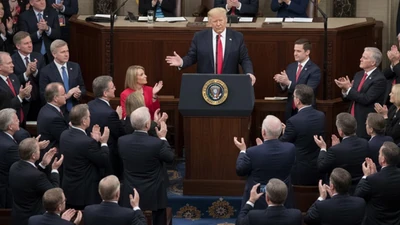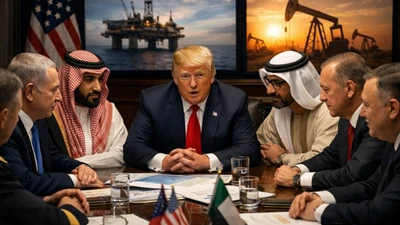Smart Investing in a Changing Economic Landscape
With President Trump back in office, the economic landscape is shifting once again—bringing new opportunities and challenges for investors who believe in free markets, national strength, and American prosperity. His administration’s policies are focused on deregulation, tax incentives, energy independence, and protectionist trade measures, all of which are reshaping investment strategies. The question isn’t just where the markets are heading—it’s how smart investors can get ahead of the curve.
Deregulation as a Growth Catalyst
The return to a pro-business regulatory environment is creating tailwinds across several sectors. By reducing bureaucratic red tape and rolling back constraints on industries like energy, banking, and manufacturing, the Trump administration is signaling a clear message: American enterprise comes first. For principled investors, this means opportunities in sectors previously hampered by federal overreach. Public companies operating in fossil fuels, domestic manufacturing, and regional banking may see improved earnings potential under these lighter regulatory burdens.
Tax Incentives Reinforce Domestic Investment
Lower corporate taxes and renewed incentives for U.S.-based production are cornerstones of the administration’s economic playbook. These measures are intended not just to reward business, but to reinvigorate the American job market and supply chains. For investors, this makes companies with strong domestic operations—and those poised to bring production back to the U.S.—particularly attractive. Look to firms investing in American infrastructure, logistics, and industrial automation as they stand to benefit from both tax policy and government contracts.
Energy Independence and Strategic Commodities
Energy policy under Trump emphasizes independence through expanded oil and gas production, reduced ESG mandates, and support for American mining operations. This shift away from foreign energy reliance is strengthening the outlook for traditional energy and critical minerals. Investors focused on long-term value may find opportunities in U.S. oil producers, pipeline infrastructure, and rare earth mining companies critical to both defense and technology supply chains.
Trade Realignment and Protectionist Measures
With tariffs and strategic trade adjustments back on the table, global supply chains are being reassessed. The Trump administration’s commitment to putting America first in trade negotiations is driving companies to reconsider offshoring, creating an edge for domestic suppliers and manufacturers. While some multinationals may face short-term cost pressures, firms less reliant on foreign inputs or those positioned to reshore production could emerge stronger. Investors should monitor trade-sensitive industries—especially in tech, automotive, and agriculture—for both risks and realignment opportunities.
Positioning for What Comes Next
Investing during this period of national recalibration demands more than chasing headlines—it requires principle-driven analysis. That means looking beyond speculative tech bubbles or fleeting market fads and focusing on companies aligned with Trump-era priorities: domestic growth, industrial resilience, and economic sovereignty. As the administration continues to implement policies centered on America-first economics, smart investors have a chance to reallocate capital with confidence, knowing that the political winds are favoring productivity, accountability, and American strength.
For the principled investor, this is more than a moment—it’s a movement. And those who recognize its direction early may be best positioned to lead in the years ahead.










